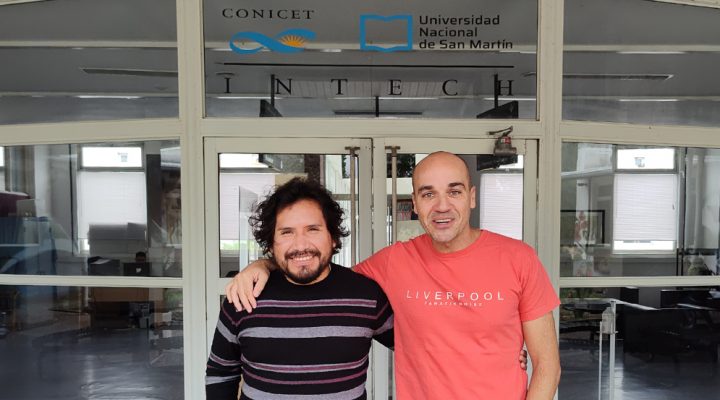BIOLOGICAL AND HEALTH SCIENCES
The lack or deficiency of an essential paternal vitamin can influence the normal development of the offspring
CONICET researchers explained how a folate deficiency in parents can cause craniofacial defects in their children. The study was published in Nature Communications.
CONICET scientists at the Instituto Tecnológico de Chascomús (INTECH, CONICET-UNSAM), and colleagues from Argentina, Uruguay and the United States, identified the molecular mechanisms that affect the normal craniofacial development of offspring from a deficiency of folate, an essential compound for the early formation of embryos, inherited through the father. The work was carried out on a study model fish known as medaka, which has reproductive behavior similar to that of other species – it has many genes in common with humans, for example – so the results can be extrapolated. The study was published in Nature Communications.
Folate is an essential compound for early embryonic development. It belongs to the group of B vitamins and is necessary to cover the metabolic functions of human beings. Since people are unable to synthesize it naturally, it must be incorporated into the diet through different foods that contain it, such as breads, pastas and cereal-based products, for instance. Folate deficiency in pregnant women is highly associated with defects in offspring in terms of facial bone formation, causing cleft lip and/or cleft palate, and nervous system development, which can lead to anencephaly (absence of parts of the brain or brain), encephalocele (bulge caused by the exit of the brain through openings in the skull) or spina bifida, that is, a defect in the spine.
“For this reason, the use of antifolate medications, such as methotrexate, which is used to treat rheumatoid arthritis, some types of cancer and severe psoriasis, is completely contraindicated during pregnancy,” explains Pablo Strobl-Mazzulla, CONICET researcher at INTECH and one of the authors of the paper. “In addition, in recent years, evidence has shown that folate deficiency in parents is also correlated with defects in the development of offspring, although it was unknown how this paternal inheritance could be transmitted until now,” the researcher adds.
To unravel these mechanisms, the experts inhibited folate in male medaka with methotrexate to cause deficiency. The result was that as the offspring grew up, it had defects in the ceratohial and basihial bones, which are part of the frontal region of the hyoid arch, necessary for stabilization of the mandible. “This is a fundamental structure in mammals for sucking breast milk,” he points out.
In order to determine the paternal inheritance mechanism, the scientists demonstrated that treatment with methotrexate caused molecular changes in the sperm. In particular, they observed an increase in specific small RNA fragments – part of the genetic material – that also contained certain chemical modifications. “What was surprising was that the mere injection of these RNAs into normal fertilized eggs was enough to cause the craniofacial defects,” says Alata Jiménez, CONICET doctoral fellow at INTECH and first author of the paper.
“We believe that the RNA content, together with the chemical modifications it undergoes, could represent a kind of QR code that reflects the paternal environmental imprints that can later be decoded in the ovum and affect the development of the offspring”, concludes the author, who is enthusiastic about the possibility that these results help to understand these processes that have great implications for the prevention, diagnosis, and treatment of paternally-derived defects in development.
References:
Jimenez, N. A., Castellano, M., Santillan, E., Boulias, K., Boan, A., Padilla, L. A., … & Cochella, L. (2022). Paternal methotrexate exposure affects sperm small RNA content and causes craniofacial defects in the offspring. DOI: https://doi.org/10.1038/s41467-023-37427-7
By Marcelo Gisande.
About the study:
Nagif Alata-Jiménez. Doctoral fellow. INTECH.
Pablo Strobl-Mazzulla. Independent researcher. INTECH.
